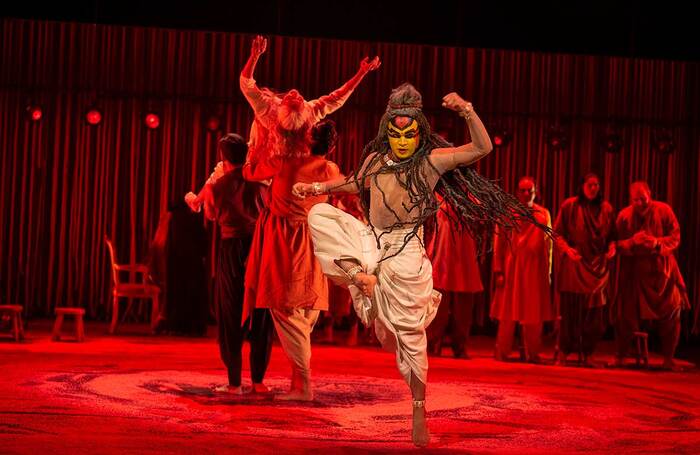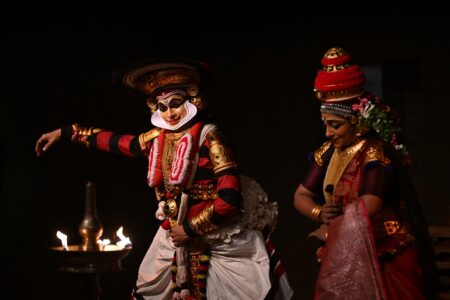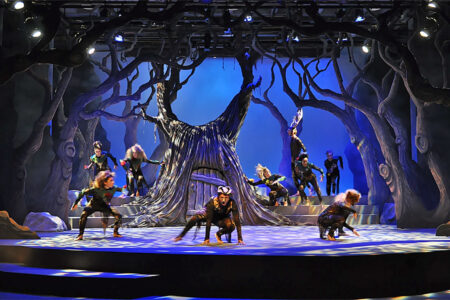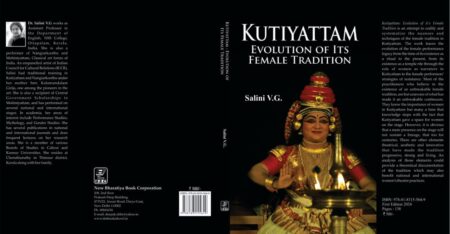The production explores the timeless themes of the epic while evolving from traditional storytelling to a modern spectacle.
A new contemporary retelling of the ‘Mahabharata’ opened in London on October 1, incorporating several Indian musical and dance art forms and bringing together a worldwide cast of characters.
The UK premiere of this musical extravaganza, which runs at the Barbican Theatre until next weekend, follows a critically acclaimed world premiere in Canada by Toronto-based Why Not Theatre and Indian-origin co-creators Miriam Fernandes and Ravi Jain.
The production is presented in two parts: ‘Karma,’ which sets out the origin story of the rival Pandava and Kaurava clans, and ‘Dharma,’ which captures a great battle that destroys the planet, leaving the survivors behind to rebuild.
“The two parts are bridged by a community meal, which is called ‘Khana and Kahani.’ So, if you experience the whole production, it’s a seven-hour journey. We start all the way from Bheeshma’s vow at the very beginning of the story and go through to the war until Yudhishtir goes to heaven,” said Fernandes, Why Not Theatre Co-Artistic Director, who also plays the narrator in the production.
“We are a small strand among a great lineage of storytellers who have woven this epic of the ‘Mahabharata’ over the ages. These stories have been passed from storyteller to audience for thousands of years and span the earth, traveling in the memories and imaginations of the South Asian diaspora. Though first composed in an ancient time, the themes of greed, revenge, ecocide, and privilege feel acutely relevant in our globalized world,” she said.
Adaptation explores storytelling
Almost 40 years since Peter Brook’s legendary international production of the great Sanskrit epic, Why Not Theatre’s adaptation also explores the act of storytelling itself.
The staging evolves from ancient and intimate settings, such as a storyteller around a fire and classical Kathakali dance, to a modern spectacle with projection, dynamic soundscapes, and poetic stage design. There is also a new opera for the most revered portion of the epic, the ‘Bhagavad Gita,’ with a live onstage band creating the musical score featuring traditional instruments such as Lord Krishna’s favorite flute.
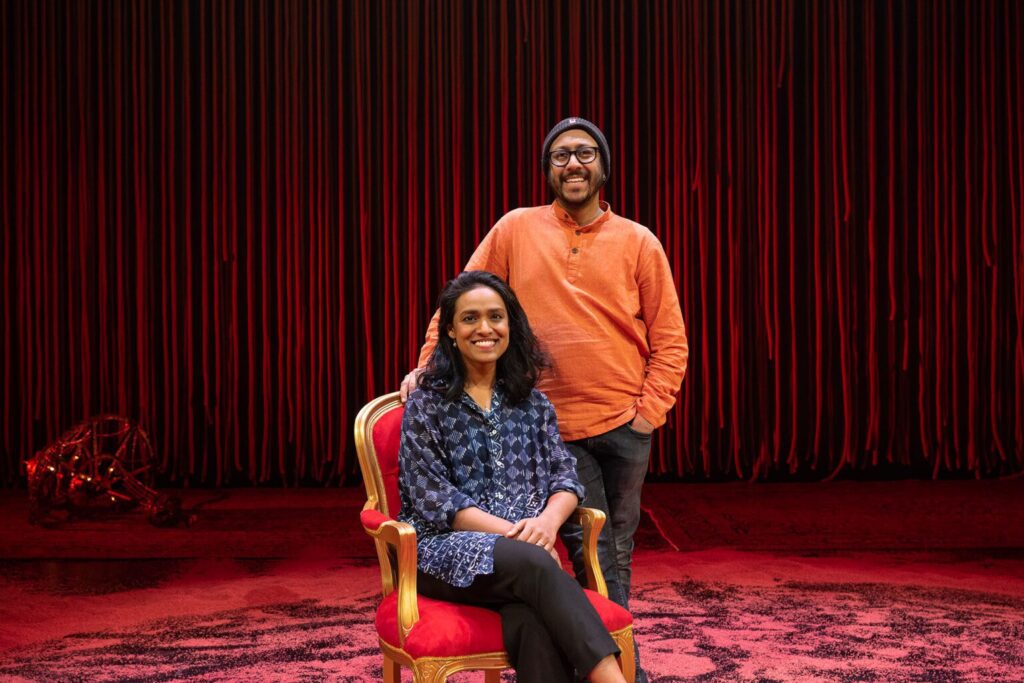
“We spent a lot of time looking at how to contemporize this, especially as values have changed in such a significant way, and culturally values clash. Canadian culture is very different from Indian culture,” said Ravi Jain, Founder of Why Not Theatre and co-writer of the production.
“One of the ways that we addressed the issue was we really have been conscious about our casting, with women playing some male roles. So, women find themselves in the story in a very different way than they are traditionally portrayed. The casting is really exciting,” he said.
Jain, whose parents hail from Delhi, launched Why Not Theatre in 2007 with a show featuring his mother’s not-very-successful attempts at arranging his marriage. Since then, the company has grown in its mission to tell diaspora stories and challenge the status quo.
“As a student in London, I watched the world masters dazzle audiences on the Barbican stage. Twenty years later, it’s a dream come true to share this complex work we’re so proud of at this truly special venue,” added Jain.
International tour planned for Mahabharata
Following its successful premiere in London, the production is gearing up for an international tour, with plans to visit more cities in Canada and then head to Australia, New Zealand, and New York. Cities across Europe and even India may be on the longer-term horizon.
“What’s so exciting is that we have struck a chord with many Indians in the diaspora, who, like us, have a connection to India but don’t live there,” reflected Jain.
“We were truly amazed because it’s a moving experience when you grow up with this story and have the opportunity to pass it on. We consider ourselves fortunate to have inherited it through generations that preserved it. So, it feels like we’ve received the baton and are passing it on to the next generation,” added Fernandes.
The artistic duo crafted the script primarily drawing from Carole Satyamurti’s ‘Mahabharata, A Modern Retelling,’ Devdutt Patnaik’s ‘JAYA,’ and the poetry of Rabindranath Tagore.
The staging brings together diverse perspectives and influences, including folk tales, street theatre, Western European physical theatre, oral storytelling traditions, and some popular Indian staples they grew up with, such as the ‘Amar Chitra Katha’ ‘Mahabharata’ comics and B R Chopra’s 1980s television series.

